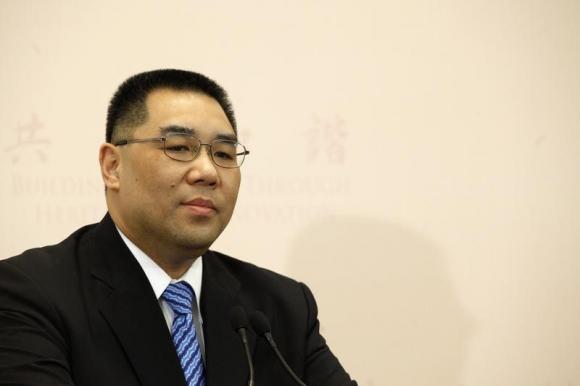
CREDIT: REUTERS/TYRONE SIU
(Reuters) – Macau, the world’s largest gambling hub, re-elected its leader and sole candidate Fernando Chui on Sunday, a widely expected result after the pro-China government stifled an unofficial referendum on democracy.
Chui was returned to office by a select panel of 400 largely pro-China loyalists in the tiny but wealthy former Portuguese colony. Macau’s leaders have taken a much harder line than in neighboring in Hong Kong, where pro-democracy activists have been struggling for universal suffrage.
The election in Macau coincides with a meeting of China’s parliament that is expected to limit 2017 elections for Hong Kong’s leader to a handful of candidates, a move likely to escalate plans by pro-democracy activists to blockade the city’s Central business district. [ID:nL3N0R002V]
Activists in Macau have still made unprecedented moves to have their voices heard, trying to follow in the footsteps of its fellow special administrative region Hong Kong by launching an unofficial democracy poll to coincide with Chui’s re-election. [ID:L3N0QX2TR]
However, authorities moved quickly to quell the informal survey that asked whether residents have confidence in Chui and whether they support universal suffrage. Police arrested five people for allegedly breaching privacy laws, charged one of the leaders with aggravated disobedience and shut down polling booths on Monday. [ID:L3N0QV12A]
Despite those moves, close to 9,000 people had voted in the unofficial referendum by midday on Sunday.
While the pro-democracy movement has grown steadily in Hong Kong since it was handed back to China in 1997, calls for change in largely apolitical Macau have been slower.
However, residents have become more vocal as Macau’s average per capita income soared above that of Switzerland. More than 20,000 people took to the streets in May to protest against perceived inequalities and worsening quality of life.
Chui, who belongs to one of Macau’s most prominent families, starts his new five-year term at a time when gambling revenue growth has fallen dramatically to lows not seen since 2009.







